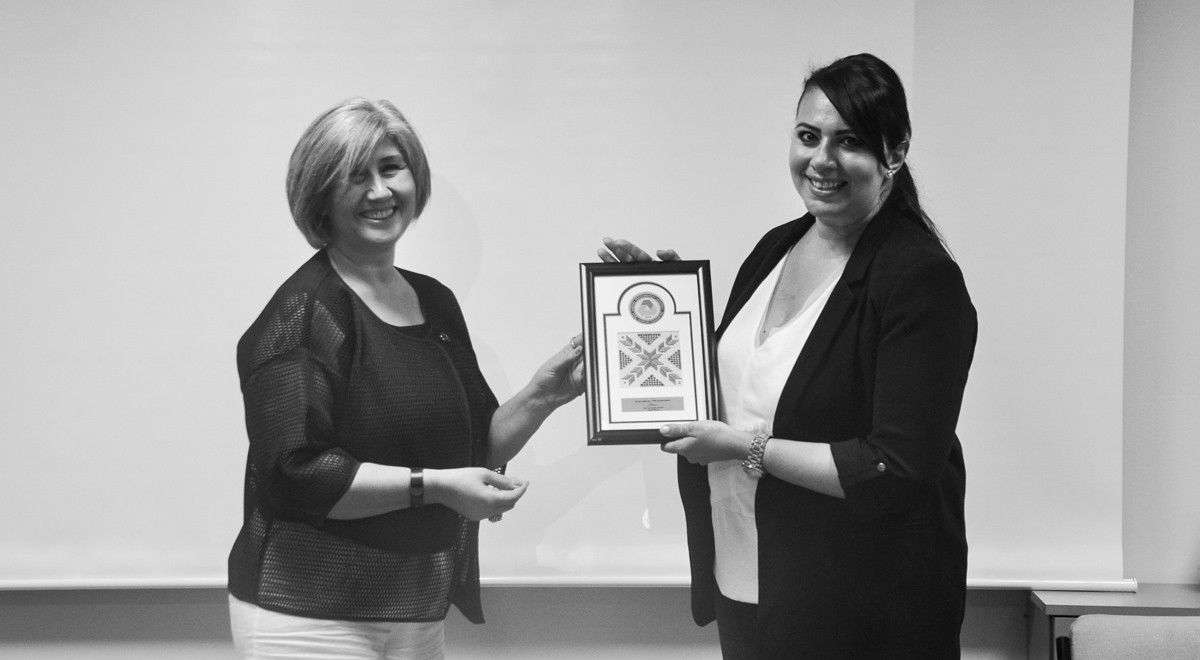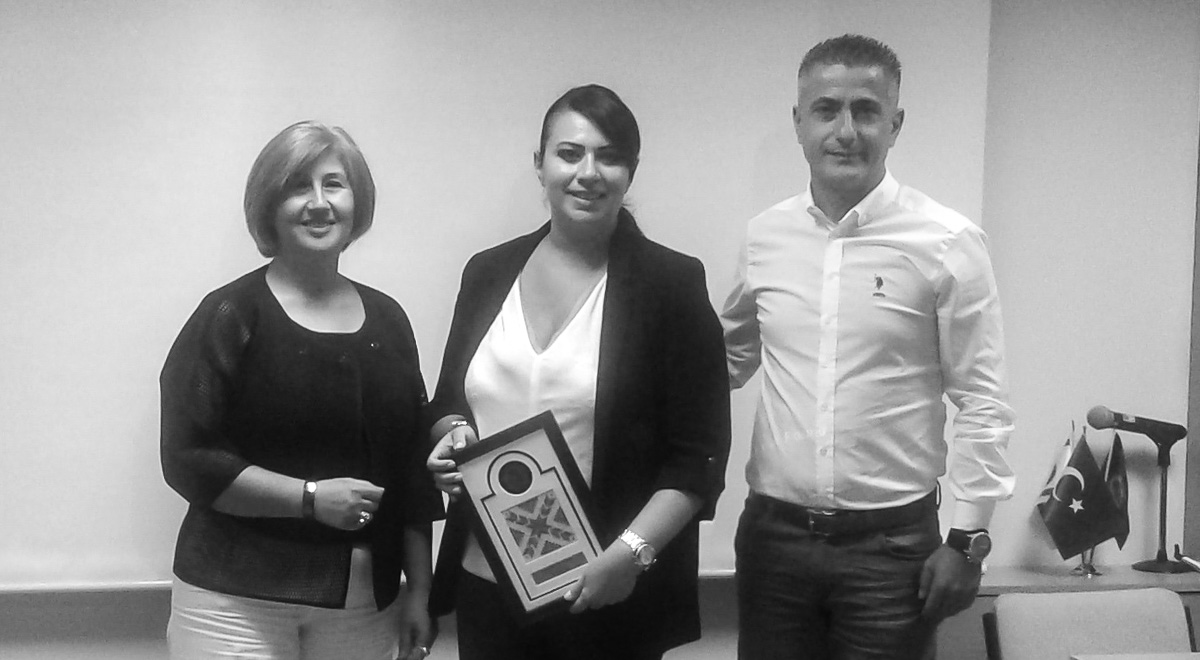Producer of the news program “Günün Getirdikleri" and Gazete 360 chief editor Aysu Basri Akter was the Eastern Mediterranean University’s guest at the talk titled “Social Media from the Centre of News to the Nucleus of Life”. The talk was a joint organization of the Alumni Communication and Career Research Directorate and the Communication Faculty, Department of New Media and Journalism. At the event that was attended by students, research assistants and members of staff, Akter shared her experience in the sector.
The opening speech of the talk was delivered by Department of New Media and Journalism Chair Assoc. Prof. Dr. Nurten Kara. Assoc. Prof. Dr. Kara expressed their pleasure in hosting EMU graduate Aysu Basri Akter and thanked all participants. “This year our program has been renewed, it is now New Media and Journalism. I am very happy to see our guest Aysu Basri Akter who will address the relationship between new media and traditional media as well as journalism and social media.
Starting the talk by expressing how happy she is to be back in EMU after all these years, Akter touched upon the advantages and disadvantages of social media in the field of journalism. According to the Women and Democracy Association’s 2013 survey 92% of people check their social media accounts as soon as they wake up. Pointing to these results Akter stated “Our life-styles have changed. Social media has become a platform we check during the day to follow developments. Even people’s position in life is shaped by their interest in social media and their following.”
“Everybody is a media mogul”
Akter stated that everyone carries out journalism for better or for worse as a result of mobile phones. “Everybody can be a media mogul. The latest updates and images can be obtained from social media. TV and print newspapers are losing to new media. Social media is a lot cheaper, quicker and more interactive. It is the dominating power of today. Akter drew attention to the importance of a social media following for journalists, providing a reminder that even the presidents of the USA and Russia are challenging each other on social media.
“Social media can lead to revolution”
Touching upon activism movements on social media Akter noted “Social media can now lead to revolution. Activist movements such as the ‘ Arab Spring’, the ‘Gezi Park’ in Turkey and the 'Reddediyoruz Platform’ in Cyprus are being organized on social media platforms.”
“Correspondents can’t accommodate the reflexes of the local community”
Commenting on how it emerged during the first gulf war that traditional media can direct societies Akter noted: “The times have changed so much that the war in Syria is covered better by the local community than professional correspondents because the correspondents can’t accommodate the reflexes of the local community.”
“Social media has left us naked and defenseless”
Noting that individuals can present themselves how they like on social media, Akter stated “We play the role of our social media profiles in our everyday life. This is serious identity illusion. On the other hand everything on social media can be used as intelligence everywhere from work to our private lives. Social media has left us naked and defenseless.”
“An unusual bond is forming between new media and law”
“An unusual bond is forming between new media and law. The WikiLeaks documents can be used as an example in this regard. Legal action has been brought against the claims of the documents and those who led to these documents emerging.” Akter also added that in comparison to the past the reputation of hackers is more positive as they are more involved in the exposing of socially important events.
“The informatics law has no vote potential”
Akter concluded the talk by speaking about there being no informatics law in Cyprus. “I don’t think there is a special reason for this. I was invited to the Parliament Commission this summer. Some changes were made to the proposed law however progress is slow because the Informatics Law has no vote potential.” Aysu Basri Akter was presented a plaque of appreciation by Assoc. Prof. Dr. Nurten Kara at the end of the talk and a group photo was taken.


